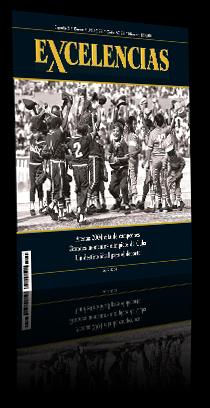Return to Athens
The world games of modern times started rolling in 1896 in the city of Athens. This year, the sports movement is finally paying off its debt to the Greek capital that was long overdue for nearly a decade. Now the Olympic Games are coming back to the same place where they were born thousands of years ago.
Right in the heart of the summertime season (from August 13 to 29), thousands of athletes from over 200 nations will breathe the same airs that once made the Hellenic peoples of yesteryear call a truce, put old rifts behind and forget about war skirmishes for a while, beaming their energies and strengths into the practice of sports.
A small country like Cuba will send a delegation of 150 competitors with a view to achieve even greater results under the indispensable principles of solidarity, fraternity and peace that are so necessary to soothe today’s uneasy world situation.
Cubans attended the Olympic Games for the first time in Paris in 1900. Things came to pass somewhat unexpected for the island nation. Ramon Fonst, the only Cuban competitor in the French capital, had signed up for the fencing contest. Mr. Fonst was at the time studying in Paris and was, to put it bluntly, the exception to the rule because foils, epees and sabers were at the time in the hands of a selective group of high-lifers. Only people born with a silver spoon in their mouths, like Mr. Fonst, could afford to study in French schools.
His performance was so successful that he went down in the record books as Cuba’s first-ever Olympic gold medalist, a deed he repeated four years later in the 1904 Games in St. Louis. On that occasion, Mr. Fonst won three gold medals: men’s epee and foil, and as a member of the Cuban foil team, together with Albert Van Zo Post and Manuel Diaz.
Cubans had to wait 68 years to see another fellow citizen climb the Olympic pinnacle. In 1972, the German city of Munich saw a trio of Cuban boxers made history. One of the world’s best pugs of all time, super heavyweight Teofilo Stevenson, alongside welter pugilist Emilio Correa and bantam weight prizefighter Orlando Martinez went gold. Eventually, Stevenson won two other Olympic titles, equaling Fonst’s performance in the early 1900s.
Since then, Cuba’s sports have been raking in unpredictable achievements. The largest Caribbean island is now one of the planet’s mightiest sport powers, grabbing a fourth place in the 1980 Games in Moscow, finishing fifth in Spain’s Barcelona in 1992, and cracking once again the top-ten plateau in Atlanta in 1996 and in Sydney in 2000.
This time around in Athens, the Cuban delegation is bent on safeguarding that position within the world’s elite. Cuba’s baseball, the island nation’s pastime, will be the likeliest winner in Greece. In addition to odds-on wins in some boxing divisions, Cuban athletes could wrap up good showings in judo, wrestling and kayaking. And some experts are even pinning a few hopes on the national women volleyball team, the defending champions of the past three Olympiads.
Nonetheless, sports authorities from the National Institute of Sports, Physical Education and Recreation prefer to focus on Cuban athletes’ quality of life. Averaging 24 years of age and sophomore educational level, these athletes can only be stacked up against those coming from the world’s richest nations.
The picture is similarly positive in terms of healthcare, training, overall preparation and assistance provided to them over the past four years. The good news is that these young men and women are both physically and mentally fit for the greatest sports event human beings have been holding for more than a hundred years.
And Cuba’s accomplishments are also visible in many other fields as thousands of athletes from Third World nations have honed their physical skills either in Cuban soil or through the help of local trainers and experts visiting their homelands.
This generous and humble gesture speaks volumes of Cuba’s willingness to share its own achievements with other poor nations. Needless to say that countless competitors from elsewhere in the 2004 Olympic Games will be coached by Cuban sports trainers.


































